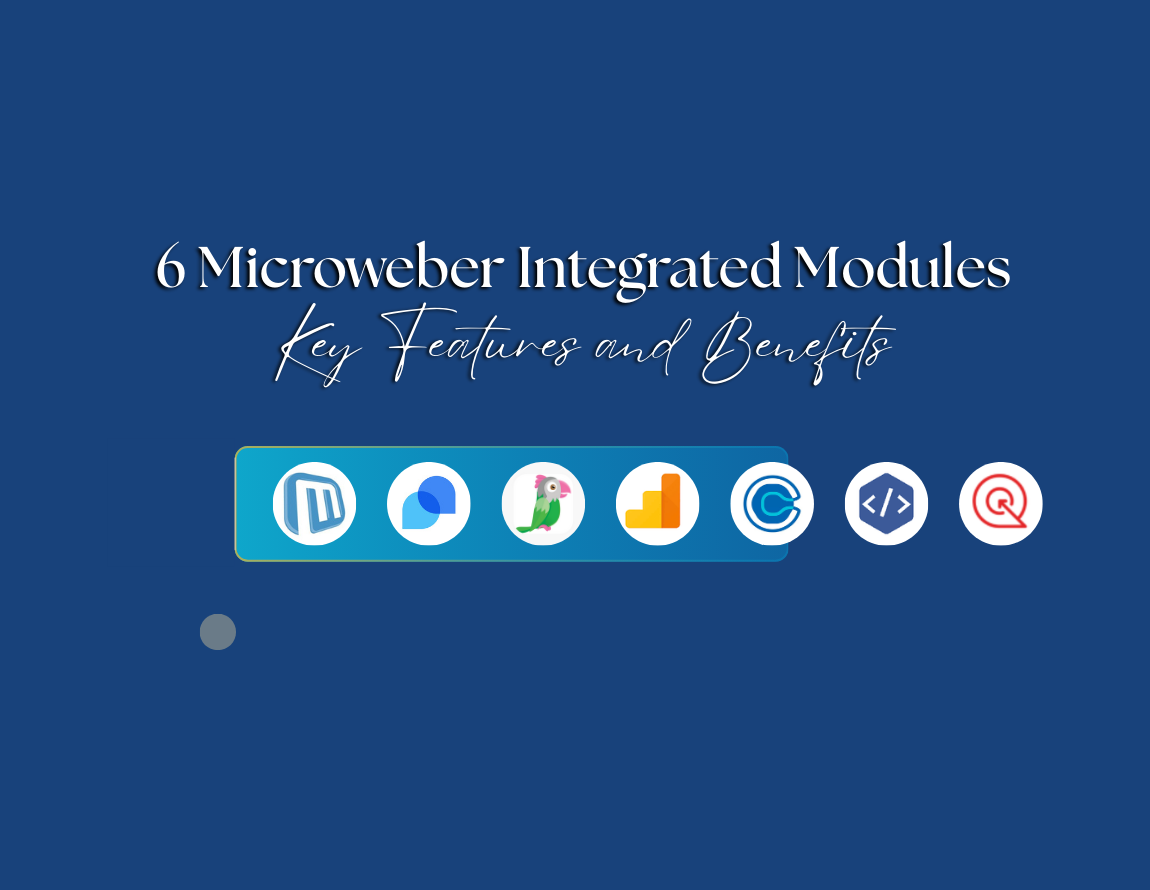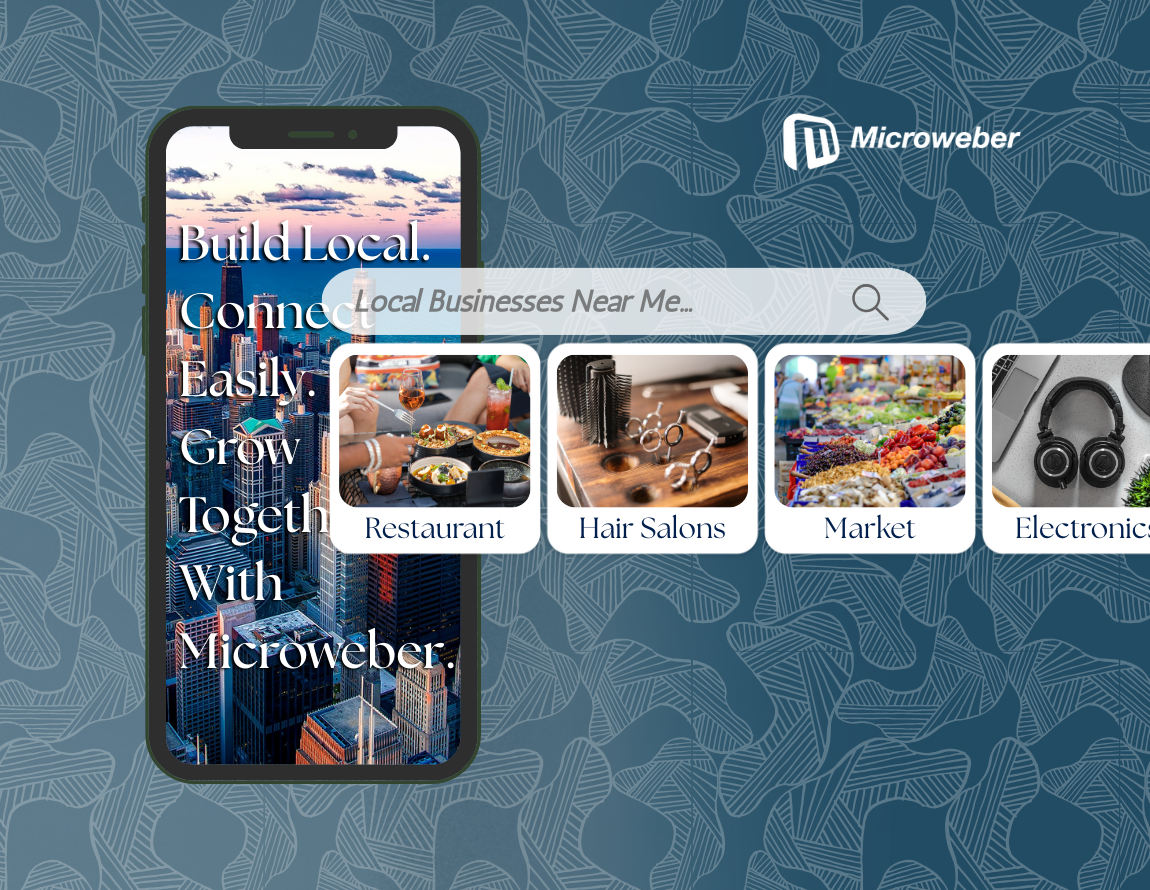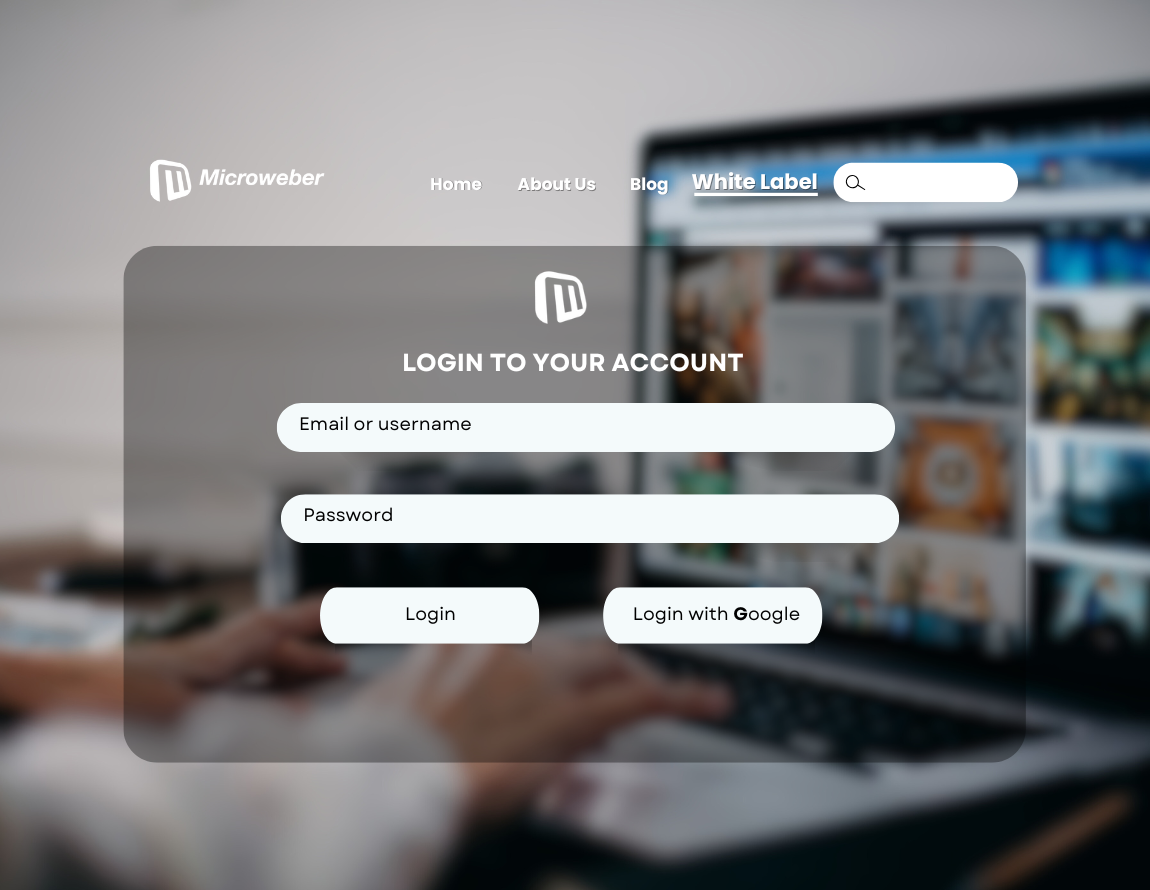Essential Security Practices for Free Open-Source Platforms
Posted on: November 18, 2024 Updated on: November 18, 2024 by Nada Allam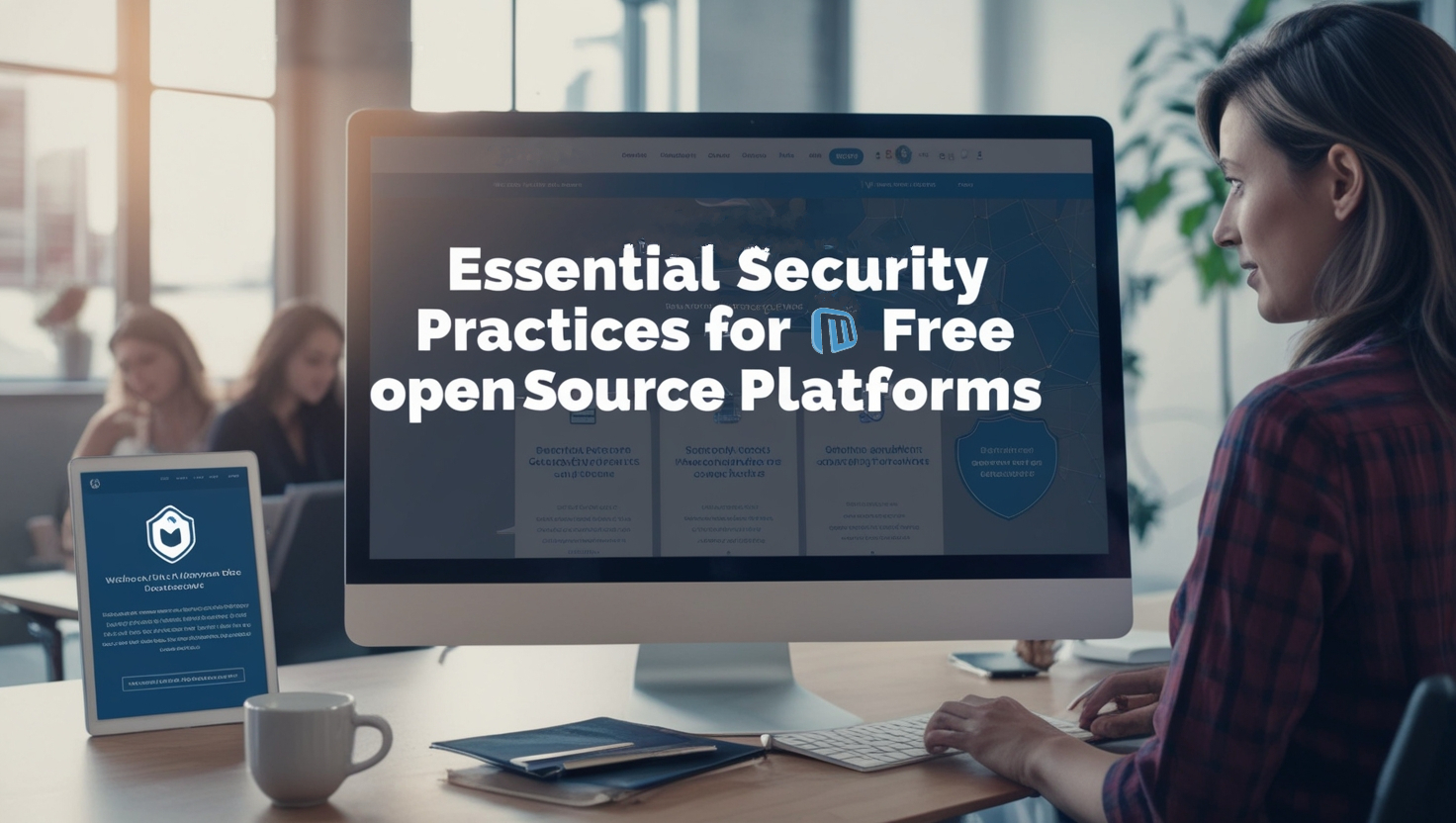 Owning a professional website is an important step for any kind of business or an individual. It can take up an online presence and can become a part of the e-commerce platform.
Owning a professional website is an important step for any kind of business or an individual. It can take up an online presence and can become a part of the e-commerce platform.
An open-source platform thus makes it easier to access, flexible, and cost-effective in web development for most users without profound technical knowledge.
However, the drawback of such platforms is that they bring with them a considerable number of disadvantages in terms of security-related challenges that a user must take into consideration.
Microweber, an emerging CMS platform, provides thorough security measures. Nonetheless, users must follow some simple practices, in order to safeguard their website even more and ensure a secure online presence.
Building a Secure Website with Open-Source Tools
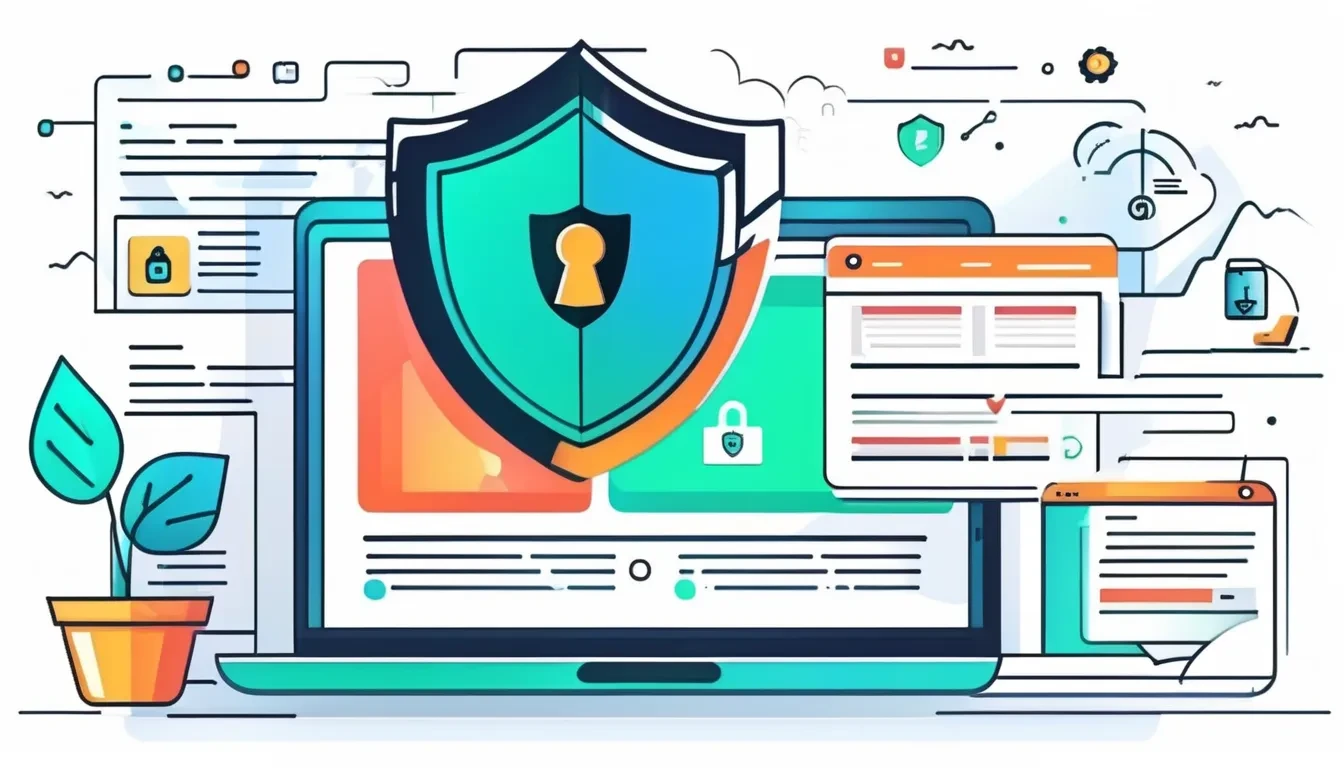 Website development and management is relatively easy with Microweber and other open-source website builders. The platforms boast capacity for customization and scalability, hence an attractive choice both for businesses and individuals.
Website development and management is relatively easy with Microweber and other open-source website builders. The platforms boast capacity for customization and scalability, hence an attractive choice both for businesses and individuals.
On the negative side of such openness, the sites may become vulnerable to security breaches if not handled properly. Most importantly, securing your website from threats in the form of hacking, data breaches, and other malicious attacks becomes paramount.
Another good practice is to include best practices related to security so that websites can be up, running, and secure.
Choosing Reputable Open Source Platforms
 A secure website is set up based on the choice of a trusted open-sourced platform. Open-source platforms are by no means all equal, with some more susceptible to attack due to either non-updating or methods of poor coding.
A secure website is set up based on the choice of a trusted open-sourced platform. Open-source platforms are by no means all equal, with some more susceptible to attack due to either non-updating or methods of poor coding.
It is, therefore, important to choose a platform that has an active community of developers renowned for regular updates and security fixes.
Keep Your Website Builder and Plugins Updated
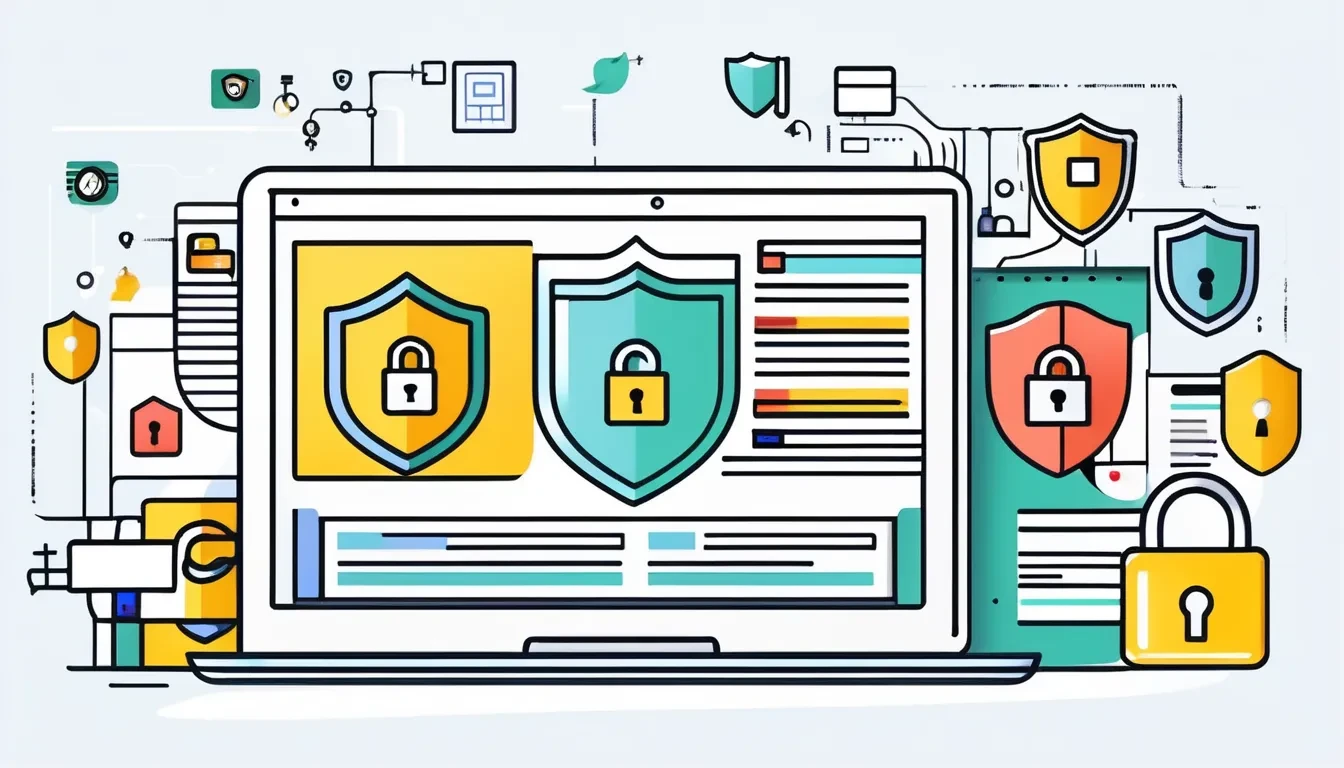 Regular website updates are key to ensure security. Most open-source platforms rely on the community when it comes to vulnerability assessment and patching. While working on a website builder, it’s essential to regularly check for security patches.
Regular website updates are key to ensure security. Most open-source platforms rely on the community when it comes to vulnerability assessment and patching. While working on a website builder, it’s essential to regularly check for security patches.
For platforms, such as Microweber, users should ensure that their website is running the latest version of the platform, in order to benefit from the newest security enhancements.
Third-party plugins and extensions also require constant updating, as outdated plug-ins can reveal numerous vulnerabilities that hackers might exploit.
Microweber provides a robust plugin ecosystem, which makes it easy to update once reminder notifications are set.
Use Strong Passwords and Enable Two-Factor Authentication (2FA)
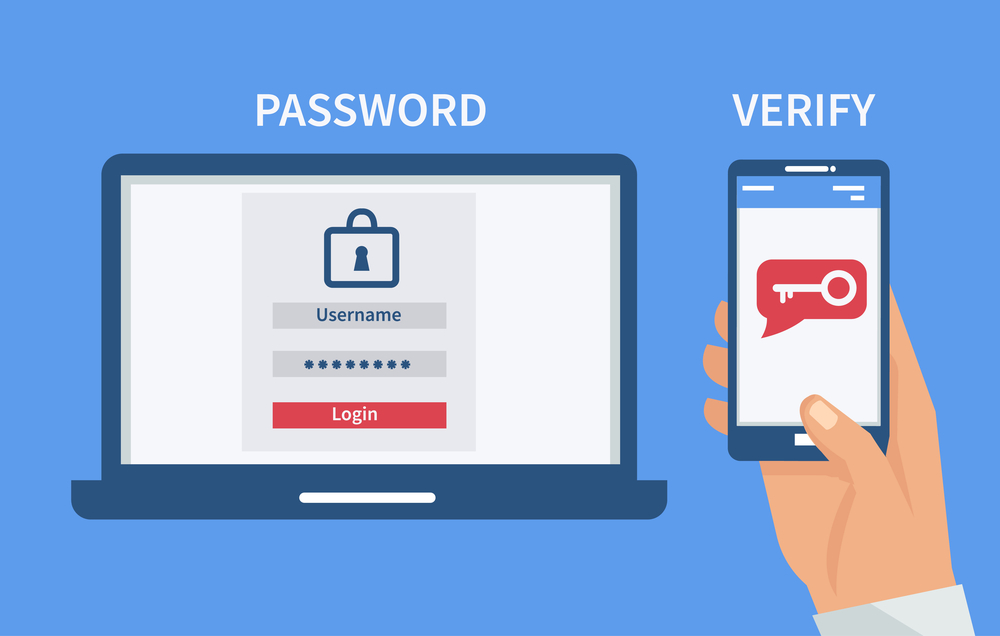 Passwords are the most critical lines of defense against unauthorized access. Weak passwords are an open invitation that permits hackers to access the website data through brute-force attacks.
Passwords are the most critical lines of defense against unauthorized access. Weak passwords are an open invitation that permits hackers to access the website data through brute-force attacks.
On the other hand, strong passwords, that contain a combination of uppercase and lowercase letters, numbers, and special characters, are essential to safeguard websites.
Microweber supports the use of strong protection and, where possible, enables two-factor authentication (2FA). This adds an additional layer of security that stands against difficult attacks, even if the initial password is somehow obtained.
Limit Plugin and Theme Usage to Minimize Vulnerabilities
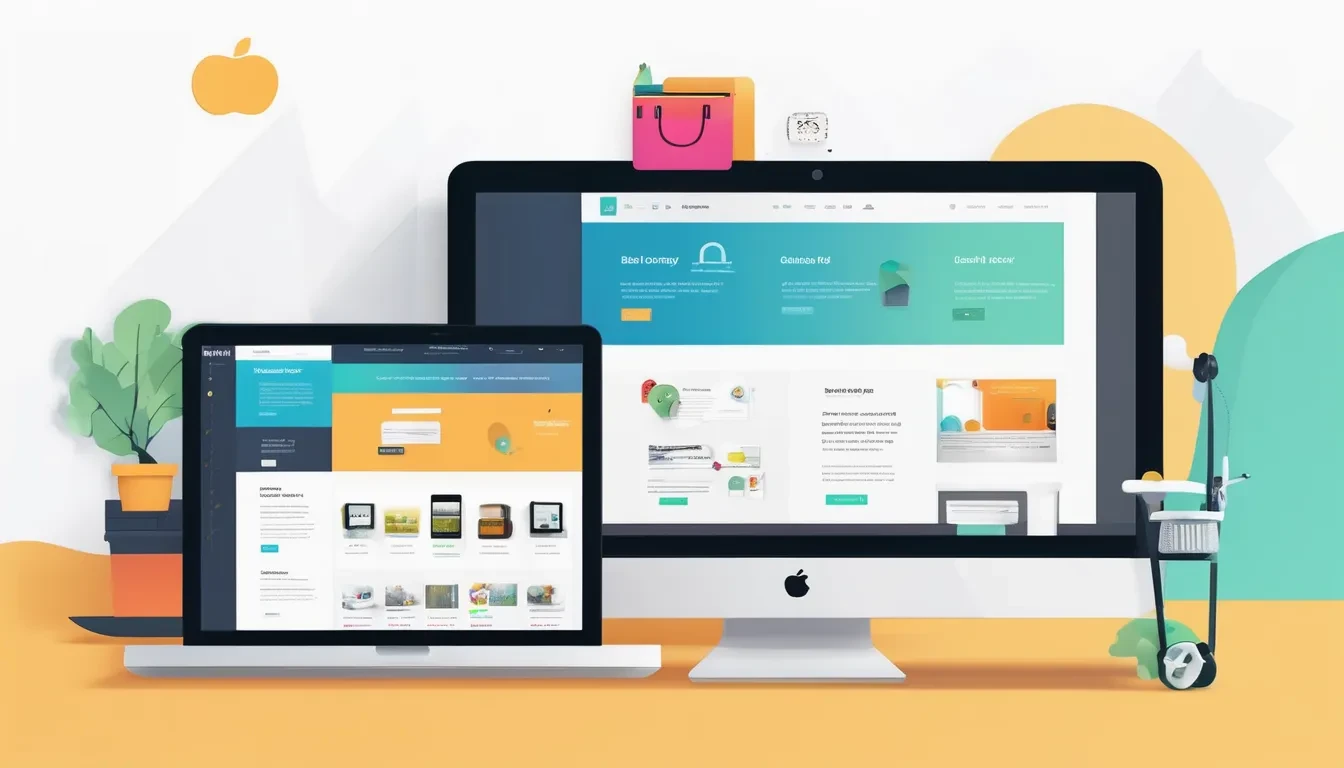 Plugins and themes are a double-edged sword. While they offer great functionality and customization features to a site, they also risk security. These plugins require regular updates and might contain vulnerabilities that wait to be exploited.
Plugins and themes are a double-edged sword. While they offer great functionality and customization features to a site, they also risk security. These plugins require regular updates and might contain vulnerabilities that wait to be exploited.
Limiting the amount of plugins and themes installed on a platform, and only using those that come from trusted and reputed sources, can enhance your website’s security.
Many available and well-reviewed plugins on Microweber can be easily hooked to the site without worry. Users should select the necessary plugins only, and ensure to download them from the official Microweber Marketplace or trusted developers.
The final step is to constantly check for updates, and remove old or unused plugins and themes that may pose risks to the website.
Set Up Regular Backups
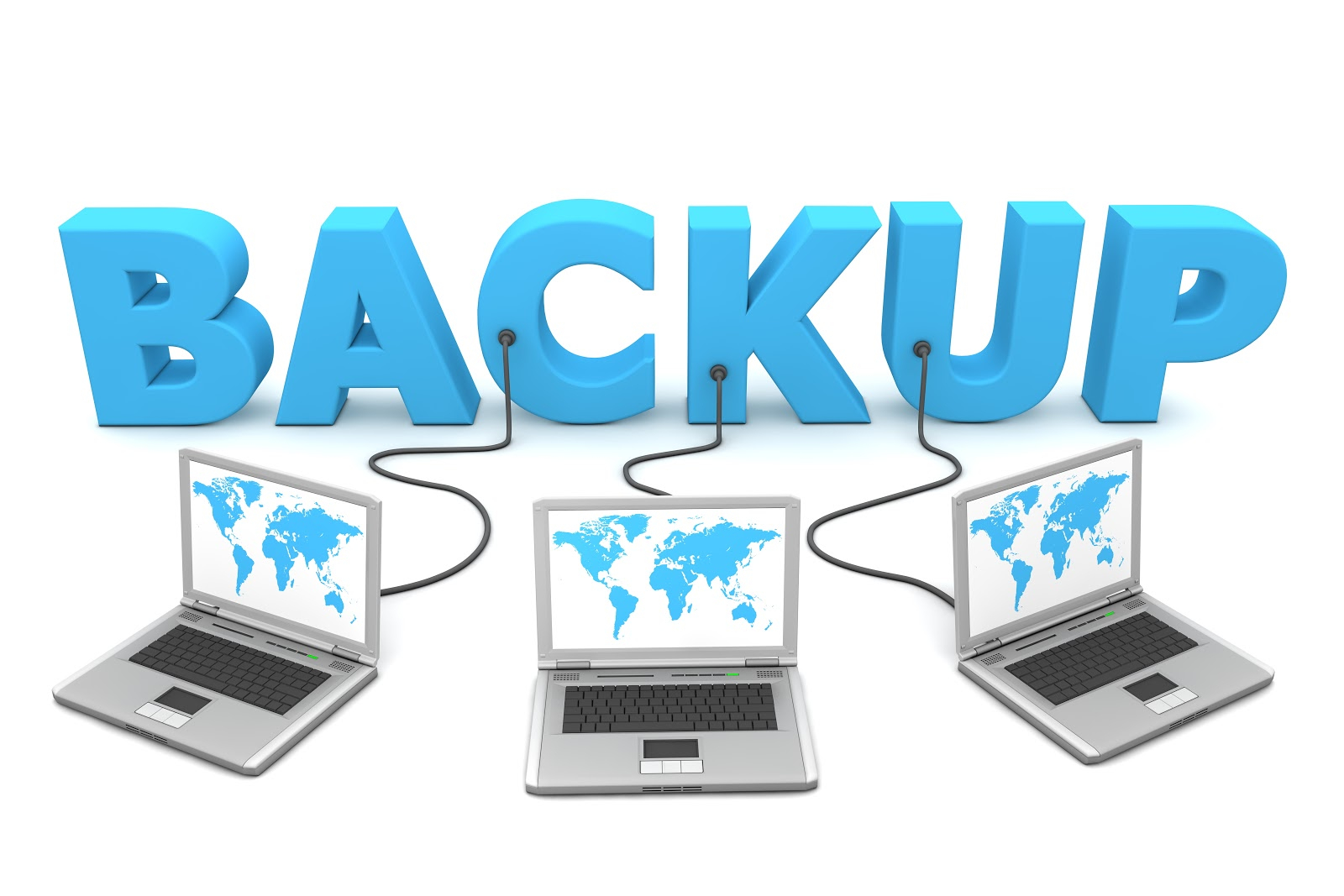 In the event that a website is compromised or hacked, a recent backup can save these crises. Periodic backups guarantee that a site can be restored immediately to its previous version without incurring further losses.
In the event that a website is compromised or hacked, a recent backup can save these crises. Periodic backups guarantee that a site can be restored immediately to its previous version without incurring further losses.
Fortunately, Microweber automated built-in backup tools, which save time and effort in the face of a problem. Users can also enable automatic backups to run daily or weekly, which depends on how often developers update the website.
This step ensures that a recent backup is safely kept, and if needed, users can retrieve the website with minimal loss of time and effort.
Use HTTPS and an SSL Certificate
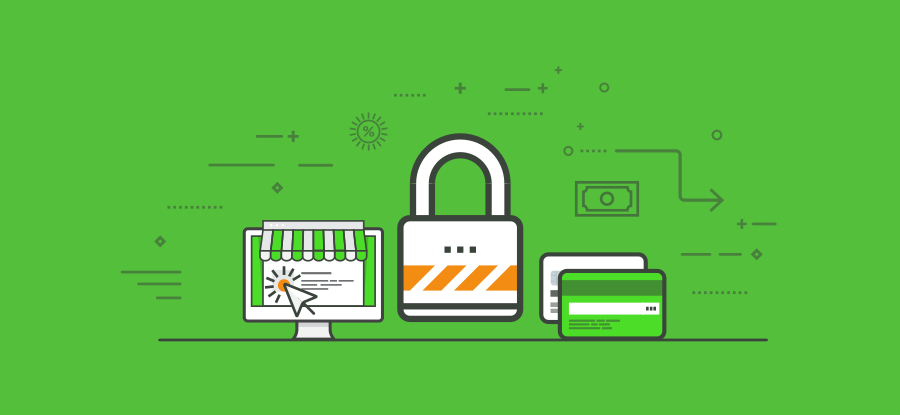 HTTPS refers to the secure version of HTTP. It encrypts all data exchanged between a website and its visitors. The encryption essentially locks out eavesdropping, data breaches, and man-in-the-middle attacks. An SSL certificate is needed to secure communications that involve the website.
HTTPS refers to the secure version of HTTP. It encrypts all data exchanged between a website and its visitors. The encryption essentially locks out eavesdropping, data breaches, and man-in-the-middle attacks. An SSL certificate is needed to secure communications that involve the website.
Microweber makes the implementation of HTTPS easy while getting an SSL certificate. Most hosting companies nowadays use free SSL certificates via Let's Encrypt, to which Microweber supports out of the box.
Once installed, HTTPS will go a long way in ensuring that a website is secure and trusted by visitors and search engines alike.
Restrict User Permissions
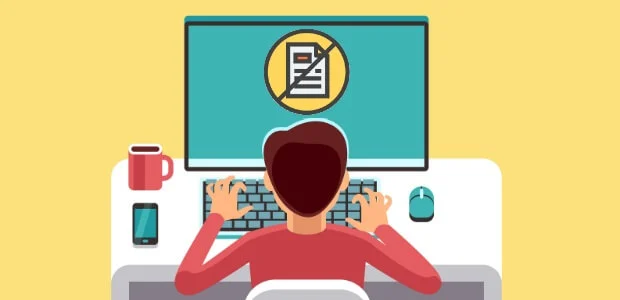 For a website with a large number of users, careful permission granting is absolutely necessary to avoid security-related risks. Giving website users more access than they need increases the possibility that changes will be made, both accidentally and maliciously, to the site.
For a website with a large number of users, careful permission granting is absolutely necessary to avoid security-related risks. Giving website users more access than they need increases the possibility that changes will be made, both accidentally and maliciously, to the site.
Role management is also a feature in Microweber. Users can create permissions depending on user types.
Users can assign permissions as Admin, Editor, or Contributor with higher or lower permissions to the backend of the website.
This provides visitors limited access only to the necessary items while reducing the risk of security breaches by unauthorized users.
Install Security Plugins for Additional Protection
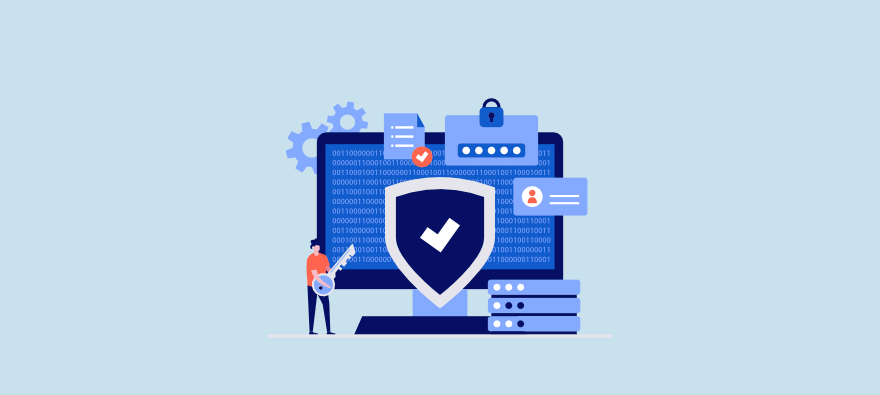 Some of the main ways to add an extra layer of protection to a website involve security plugins. These different plugins contain various facilities, such as firewalls, malware scanners, and login protection, which help defend a website against many typical online threats.
Some of the main ways to add an extra layer of protection to a website involve security plugins. These different plugins contain various facilities, such as firewalls, malware scanners, and login protection, which help defend a website against many typical online threats.
In Microweber, users can install various security plugins, which are quite trusted. These will help monitor the website against vulnerabilities and block suspicious activities that may show up.
Monitor for Suspicious Activity with Security Logs
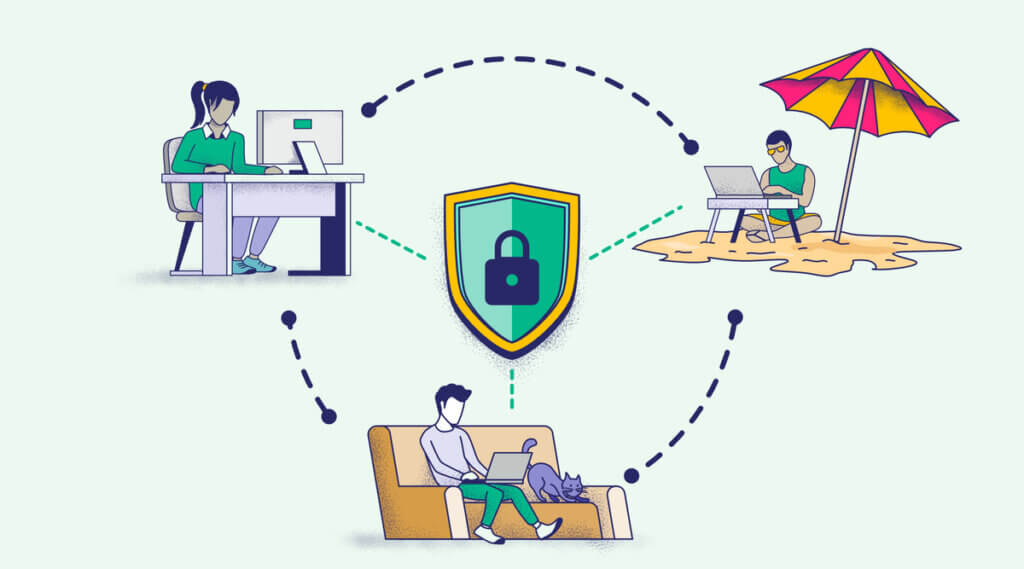 Monitoring security logs entails the practice of finding out potential threats to the website. This at times catches threats through the review of the logs from time to time, finding suspicious login attempts, unauthorized changes, or other unusual activity that may make them suspect a breach.
Monitoring security logs entails the practice of finding out potential threats to the website. This at times catches threats through the review of the logs from time to time, finding suspicious login attempts, unauthorized changes, or other unusual activity that may make them suspect a breach.
The logging feature in Microweber keeps track of user activity, and by doing so, will inform users of the security level of their website.
Alerts should be set up to catch unusual activities and go through the logs regularly to identify any anomalies that might pop up.
Educate Yourself on Basic Security Practices
 A better understanding of website security enables users to protect their site more efficiently. The best practices for securing open-source platforms come from knowledge.
A better understanding of website security enables users to protect their site more efficiently. The best practices for securing open-source platforms come from knowledge.
Regular checks for updates on Microweber’s security documentation and community discussions can freshen knowledge, and improve the website’s security.
Conclusion
The security of a website is not a one-time activity; it is an ongoing process that involves great attention and care. Users can minimize the chances of their website getting compromised by following the top security tips.
From choosing a reputed platform like Microweber, keeping the website updated along with the plugins, using strong passwords, and implementing security measures like HTTPS and backups, users can make sure that their site remains safe and secure.
FAQs
How do I know if my site is secure?
Regularly review your website's security settings, monitor logs to look for suspicious activity, and ensure your SSL certificate is turned on.
Of course, you should also install security plugins and keep your software updated.
What is the best plugin when it comes to security?
Wordfence, Sucuri Security, and iThemes Security are some of the most popular plugins used with the aim of improving the security of open-source sites.
If you happen to use Microweber, for instance, take a look at which security plugins are available out there on the marketplace of the platform.
How can I protect my website from hackers?
Strong passwords, two-factor authentication, installation of security plugins, and updating of your platform and plugins. Run regular backups and manage user access. You make the risk as minimal as possible by doing all this.


